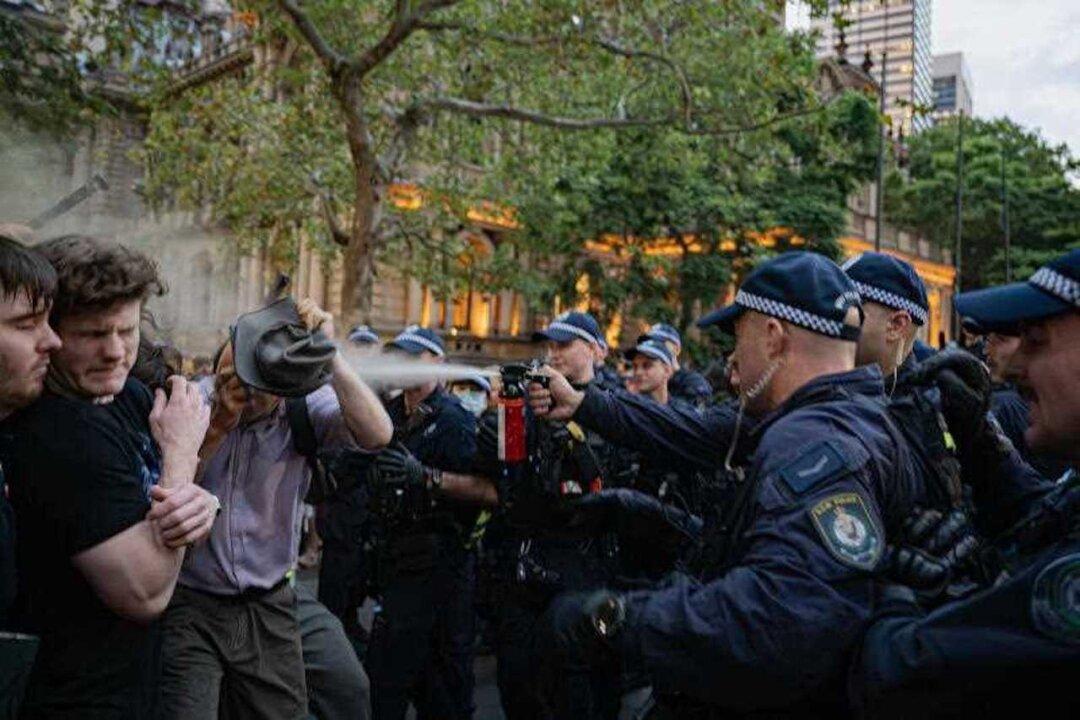
A woman walks past signage for Australian universities in Melbourne, Australia, on June 10, 2020. William West/AFP via Getty Images
Government spending on research has dropped to its lowest on record, triggering a warning from universities.
New forecasts show spending is on track to be 0.49 percent of GDP in 2022/23, having never dropped below 0.5 percent since records began in 1978.





